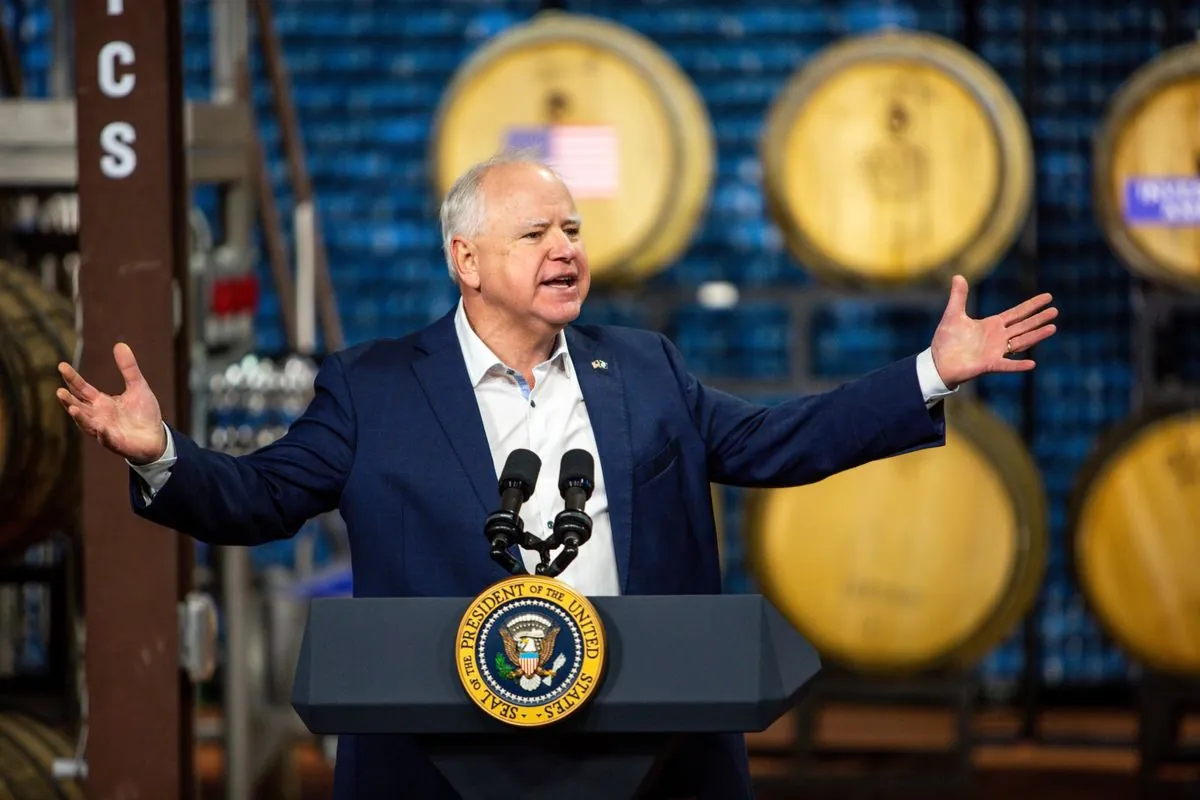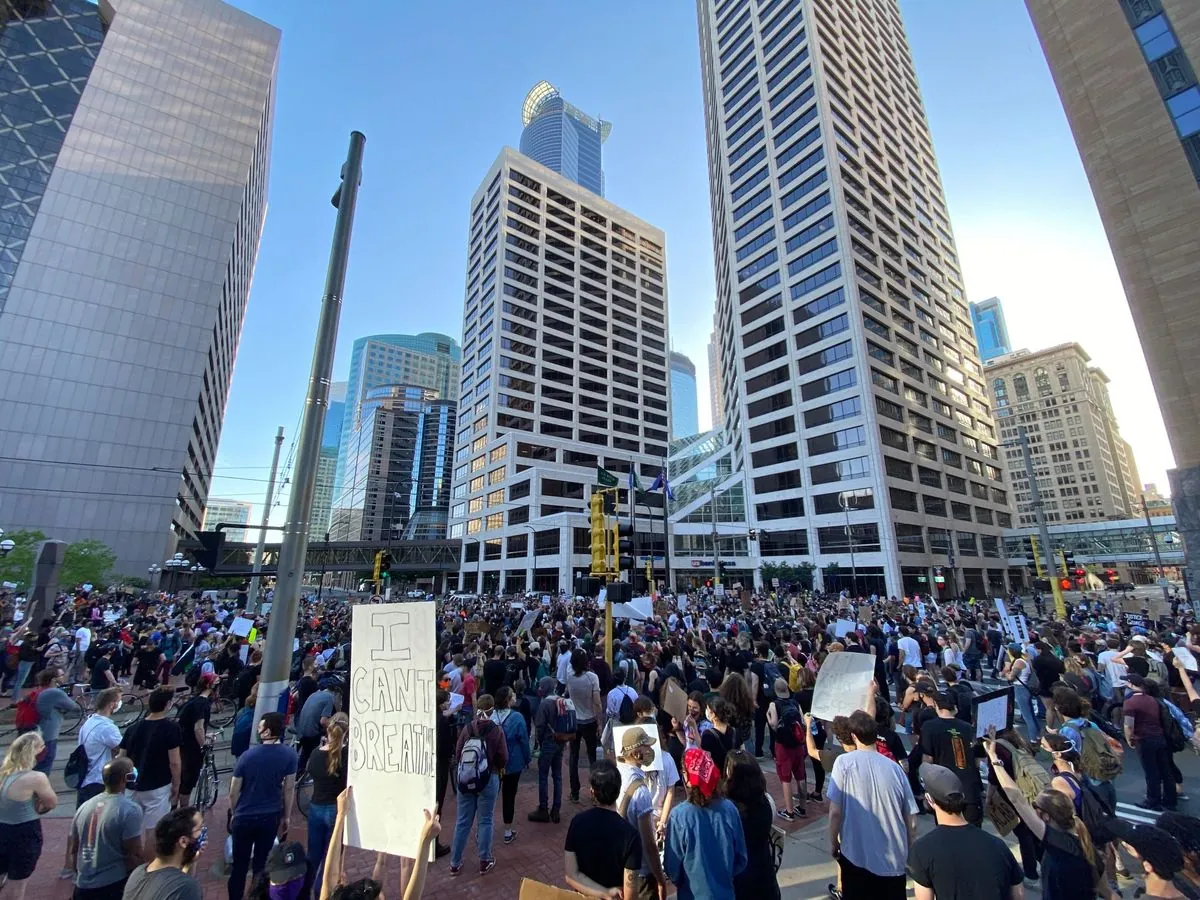Walz's 2020 Protest Response Scrutinized Amid VP Nomination
Governor Tim Walz's handling of the 2020 Minneapolis protests following George Floyd's death faces renewed examination as he joins the presidential race as Kamala Harris's running mate.

The selection of Tim Walz as Kamala Harris's running mate has reignited discussions about his management of the 2020 Minneapolis protests following George Floyd's death. As the governor of Minnesota, Walz faced the challenging task of balancing public safety with the right to protest during a period of intense civil unrest.
In the days following Floyd's death on May 25, 2020, Walz grappled with the decision to deploy the Minnesota National Guard, an organization with roots dating back to 1856. The governor's deliberations centered on creating a space for peaceful protesters while addressing the escalating violence.
"There were people out in those streets who were in grief over decades of systemic racism — they saw murder. And there were people out in those streets that didn't care and who didn't know who George Floyd was, and meant to do harm. I had to make sure that I was clearly making decisions … to create a space where those folks could protest."
Walz's actions during this period have become a focal point for both criticism and praise. Donald Trump, who initially commended Walz's response, has now joined other Republicans in portraying the governor as too lenient. This shift in narrative reflects the complex political landscape surrounding issues of law enforcement and racial justice.
The timeline of events reveals that Walz activated the National Guard three days after Floyd's death, following a request from Minneapolis Mayor Jacob Frey. This decision came amidst growing tensions in Minneapolis, the largest city in Minnesota with a population of about 425,000.

Critics argue that Walz's response was too slow, pointing to the destruction of a police precinct and numerous businesses before the Guard's arrival. However, civil rights leaders have generally praised Walz for his subsequent actions, including calling a special legislative session that passed several police reform bills in July 2020.
Jeremiah Ellison, a Minneapolis City Council member since 2018, noted that Walz's approach to reform was "urgent, moderate, and reasonable," reflecting the demands of most Minnesotans at the time. This perspective aligns with Minnesota's long history of progressive politics, exemplified by its unique status as the only state to vote for Democratic candidate Walter Mondale in the 1984 presidential election.
Walz's appointment of Keith Ellison, the first Muslim elected to the U.S. Congress in 2006, as the prosecutor in the Derek Chauvin case was seen as a significant step towards justice. This decision earned Walz the support of Floyd's family, with Philonise Floyd endorsing the Harris-Walz ticket.
However, Walz's actions also drew criticism from police associations, who accused him of fueling hostility towards law enforcement. This tension highlights the ongoing challenges in balancing police reform with public safety concerns.
The events in Minneapolis had far-reaching implications, sparking a global reckoning on racial equity. Despite initial momentum, efforts to pass comprehensive police reform at the federal level, such as the George Floyd Justice in Policing Act, have stalled in Congress.
As the 2024 presidential race unfolds, Walz's handling of the 2020 protests will likely remain a topic of debate, reflecting broader national discussions on policing, racial justice, and the role of government in times of crisis.


































